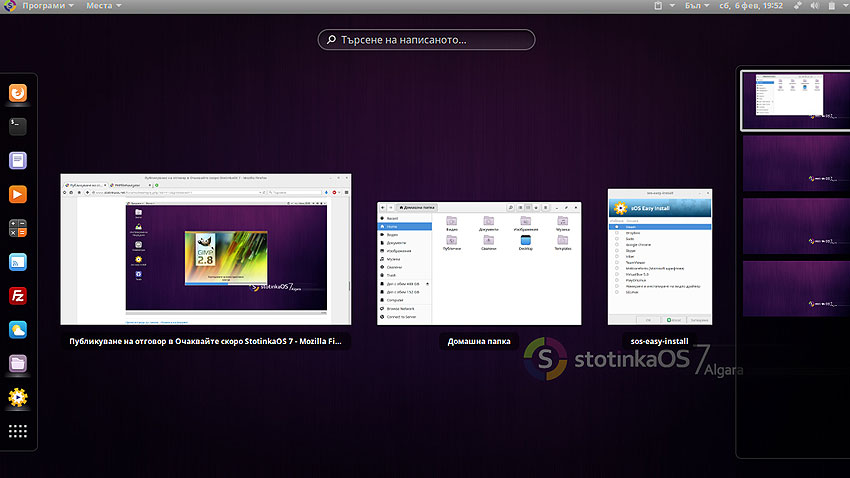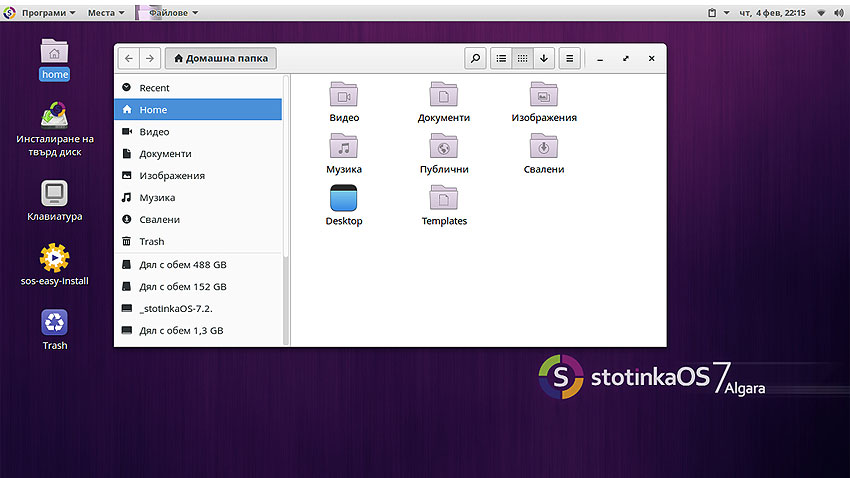
Meet StotinkaOS – a free Bulgarian Linux distribution, or an operational system, based on the Linux core. A Bulgarian team has turned this server-oriented operational system into a PC version, adding its own software packages and providing support, lessons and other functions that users might find attractive, in order for their work with the system to be easy and pleasant. One of the founders of StotinkaOS Vladislav Alexandrov describes the concept like that:
“Our idea is to create this environment for people, looking for an alternative, who want to go from well-known and expensive operational systems to something free. They need to be able to “migrate” from the first environment to the second one.”

Projects of that kind are a global practice and almost each country worldwide has its popular Linux distribution. StotinkaOS is the first and for the moment only one in Bulgaria. Despite all difficulties Vladislav and his partner Ivaylo Kuzev released the first edition of the OS on 27 February 2015. Vladislav says that Stotinka OS is free and will always be. The team is a volunteer, covering its own expenses. A Donate button on the webpage provides an option for support. Vladislav says that the Linux distributions are competitive to the large-scale OS, but the problem is that standards have already been implemented and people follow them somehow resignedly.
“I dare to say that Linux counts and moves a major part of our life – Internet sites, super computers… it is even the leader there. However, the issue is that it is relatively unknown to users. But I think free software and Linux in particular have their future and the thing is to be developed. We can’t all trust a single company with closed source. Nobody can tell how the OS communicates, on which servers and what information is sent. The problem is that we don’t know whether personal data is collected or not. Such problems don’t exist with the open software. Even if you don’t know anything about software engineering, you can hire an expert who will check your code, as the latter is visible. Certain companies are working very actively in that direction.”

The OS can be installed in over 20 languages, Bulgarian assistance offered as well.
The Pravetz Bulgarian computers have been on the market for a year or two. An eventual rejoining of both teams might result in an entirely Bulgarian product. Vladislav comments like that:
“We haven’t though it over, but it is an idea. If the Pravetz guys have interest, they might try our OS. We can even provide support for their hardware, in order for the software to be fully applicable…”
The OS hasn’t got its mobile version yet, but such option exists if the project develops. They see future in front, as business and administration work mainly with them. Some students, who came upon their project offered it to their tutors and it was decided the OS to be implemented in the university’s infrastructure with the purpose of training.
English version: Zhivko StanchevBulgaria’s successes at international science Olympiads in 2024 can be seen in an exposition entitled “Fantastic minds”. Inaugurated to mark Awakeners” (Enlighteners”) Day, 1 November on Lovers’ Bridge near the National Palace of Culture in Sofia,..
Leading researchers and lecturers from the St. Kliment Ohridski University in Sofia and the Institute of Astronomy and National Astronomical Observatory of the Bulgarian Academy of Sciences will be paying a visit to the Museum of Natural History in..
The village of Oryahovitsa, Stara Zagora region, today celebrates its symbol - the walnut tree. There will be a Festival of the Walnut with a varied programme featuring the Kazanlahsko Nastroenie (Kazanlak Cheer) Orchestra, the soloist of..

+359 2 9336 661
